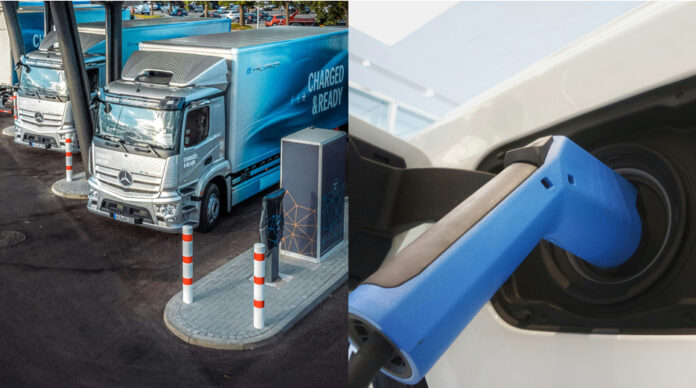The global transport sector significantly contributes to greenhouse gases, with approximately 24% of direct CO₂ emissions from fuel combustion coming from such activities. Commercial vehicles play an important role in the transportation industry for moving goods. The application of technology and sustainability in electric commercial vehicles (ECVs) makes for a viable pathway to minimizing environmental disturbances and maximizing productivity.
Advancements in Electric Commercial Vehicles
According to the lookout on the commercial electric vehicle development, spectacular improvements have been made regarding adoption into the market and performance of the vehicle. Tata Motors, for example, has launched several EV trucks and EV buses targeting sustainable transportation with the help of reducing environmental impact to a reasonable extent. These vehicles are adorned with active features in fleet telematics and geo-fencing capabilities. This technological integration not only engages the driver for a comfortable experience but also helps in better fleet management, wherein operational costs and environmental impacts are reduced. To learn more about the latest electric commercial vehicles, you can visit the 91trucks website.
Leveraging Technology for Sustainability
Digital advancements, such as real-time vehicle monitoring and machine learning, enhance vehicle efficiency optimization. Driving assistance systems can provide drivers with feedback by utilizing real-time data from several sensors built into vehicles, guiding them to adopt driving patterns that minimize power consumption and so improve vehicle range. This approach reduces energy use, extends vehicle lifespan, and lessens environmental effect.
Advanced fleet management technology, including tracking, trip planning, and vehicle health monitoring, allows operators to make adjustments for improved efficiency and sustainability.
Moreover, the deployment of Vehicle-to-Grid (V2G) technology allows electric commercial vehicles to interact with the power grid, providing storage capacity and improving system stability. Effective trip and charge planning, facilitated by advanced data collection and analysis techniques, enables fleet managers to leverage fluctuating energy prices and reduce operational costs. This method enhances economic sustainability and aligns with overarching sustainability goals.
Challenges and Future Outlook
Despite the promising advancements, the deployment of electric commercial vehicles faces several challenges. Regulatory inconsistencies and insufficient charging infrastructure pose significant challenges, especially in India. Manufacturers and dealers endeavor to boost electric vehicle sales despite limited demand and insufficient infrastructure, highlighting the need for supportive policies and investment in charging networks. An extensive charging network is crucial for promoting enduring electric vehicle adoption in India, since it allows ECV owners to charge their vehicles rapidly and conveniently, mitigating concerns over battery depletion. This is essential as range anxiety continues to be a major impediment to electric vehicle adoption.
Conclusion
Utilizing technology and sustainability in electric commercial vehicles offers a feasible approach to minimizing environmental effects and improving operational efficiency. Ongoing investment in technology advancements, favorable legislation, and infrastructure enhancement will be essential in addressing present problems and unlocking the complete potential of Electric Commercial Vehicles in fostering a sustainable future.

















